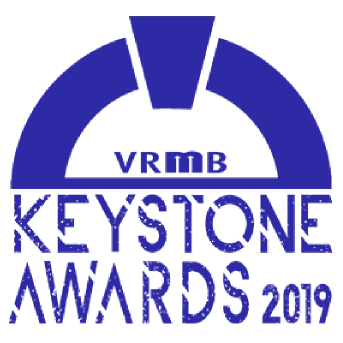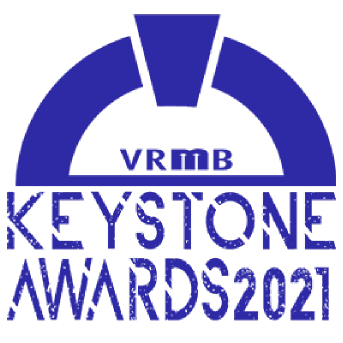Guide to Georgia Short-Term Rental Regulations in 2023
Disclaimer
Short-term rental regulations are in a constant state of change. The below resource is updated when possible, but it should not be taken as legal advice. It is critical that you consult with a legal advisor to ensure you are taking the necessary steps to keep your business safe and legal.
Short-term rental (STR) regulations in Georgia can be hard to find and understand. Below is a comprehensive look at the proposed or legislated Georgia short-term rental regulations to help property managers and vacation rental owners better run and ultimately scale their businesses.
Georgia Laws Related to Short-Term Rentals
There are no current state laws or regulations in effect regarding short-term rentals—all Georgia short-term rental laws happen on a local level.
However, most local governments require that short-term rental operators, owners, and managers register with the Georgia Department of Revenue to pay hotel-motel (lodging) and sales taxes.
In recent years, STRs have sparked disputes on affordable housing and property rights in residential Georgian communities*. Local governments have ratified short-term rental regulations across the state, with more cities passing regulations each month. All of which can make it difficult to scale your vacation rental business.
* – https://www.ajc.com/gdpr.html
Proposed legislation for short-term rentals in Georgia
House Bill 523* was introduced in early March 2019 which moves to restrict local government from regulating short-term rentals. At the time of writing, the bill is still active and has not yet been approved.
* – https://www.gacities.com/GeorgiaCitiesSite/media/Content_Images/FINAL-Gold-Dome-Update.html
Cities in Georgia with short-term rental regulations
Cities across the state are enacting different Georgia short-term rental laws and raising vacation rental operating and application fees. With the rapid rise of Airbnb and other online travel agencies like Vrbo and Booking.com, various counties and cities are taking legislation into their own hands for the safety of their communities.
Depending on which city you operate or own a vacation rental in, there might be restrictions on how many rental properties you can own and who you can rent to. That’s why it’s important to be aware of the specific Georgia Airbnb laws and regulations in your area.
Let’s take a look at the various Georgia short-term rental regulations that might impact you if you own or operate a vacation rental management business in Georgia.
Atlanta
Adopted in March 2021 and enforced in June 2022, the City of Atlanta Short-term Rental Ordinance permits property owners, their managers or agents, and long-term tenants to operate a vacation rental business provided they obtain a short-term rental license.
However, the ordinance restricts Airbnb hosts and short-term rental managers from renting their property for over 30 consecutive days. Also, you can only own two Airbnb or short-term rental properties, one of which must be your primary residence.
The license of your primary property needs to be filed and granted before you can apply for the license of your second property. Short-term rental license applications can be filled out and submitted online and it can take up to 10 business days to receive them.
To get an Atlanta Airbnb license, you must:
- Be a resident of Atlanta
- Pay $150 annual fee
- Pay 8% hotel-motel tax
- Adhere to noise and party regulations—or pay up to thousands in penalty fees
The adoption of these Atlanta short-term rental laws are compounding vacation rental managers’ challenges in Atlanta—making it almost impossible to run your STR business in Atlanta from outside the state.
Cobb
Cobb County has adopted a new law that requires short-term rental owners and operators to register their properties and apply for permits with the county. It will go into effect on January 1, 2023. It requires Airbnb hosts to obtain a separate vacation rental certificate for each rental unit (lasting 30 days each) and appoint a local agent who can quickly resolve any issues on the ground.
Other regulations include:
- Limiting occupancy rates to one person per 390 square feet
- One parking space per property bedroom, plus one more
- STR operators must follow country residential property codes for building, zoning, fire prevention, and health and sanitation
South Fulton
South Fulton began regulating the short term rental industry in 2019. There are several steps to obtain your permit to legally rent a home in this area and the unit must be inspected for safety prior to obtaining a permit.
- $200 application fee
- Written agent certification form
- Apply for a short-term rental license and renew it every year
- Obtain an occupation tax certificate
- Apply for a business license, whose number must be included in any advertisement of the property
- All units must be inspected by the county to ensure the property is in compliance with building and fire codes prior to the release of a rental license
- Notarized sworn code compliance verification form
- City noise ordinance must be posted in the unit and visible at all times
- Parking must be available on the same lot of the short term rental
Once receiving the permit, South Fulton vacation rental operators and Airbnb hosts must pay an 8% hotel-motel tax on a monthly basis.
Brookhaven
Brookhaven has also adopted the Short-term Rental Ordinance, which gives resident homeowners the ability to rent their property with a permit. Applicants can apply for, and obtain, a 1-year permit for $35 or a 3-year permit for $50. They must also provide documentation of their current property exemption through DeKalb County. Special land use requirements, zoning requirements, and a 180-day rental cap apply annually.
Owners and hosts entering this market should pay close attention to compliance and work directly with their Community Development Department as permits will not be reissued annually if you are found to be in violation twice in a single year.
Macon
Macon allows short-term rentals with the proper registrations in place. You can either file for a business license and register as a Short Term Vacation Rental (STVR) or file for an STVR permit. The application and permit registration processes are free. Permits expire annually on December 31st and you must renew accordingly. Every property or “dwelling” needs its own STVR permit. To complete the application, you’ll need:
- Additional Owner Information Form (if applicable)
- Proof of ownership of the STVR property (e.g., deed, lease, etc.)
- Proof of insurance indicating that the property is being used as an STVR
- Copy of a valid Occupation Tax Certificate
- SAVE Verification Affidavit
- Sworn Code Compliance Verification Form
- Copy of Certificate of Authorization to Collect Hotel-Motel Tax (Issued by Macon-Bibb County Tax Commissioner)
Savannah
Savannah allows short term rental owners and operators to rent their properties after completing an STVR application process. The STVR application fee costs $400 with a non-refundable annual renewal application fee of $250. However, there are several zoning ordinances in place and owners should research the individual requirements based on the district and ward where their property is located. STVRs are allowed within the STR overlay district, which includes the Downtown, Streetcar, and Victorian districts. Outside the overlay, they are only permitted in certain Business and Agriculture zones.
The latest ordinance passed in 2017 established a 20% ward cap which limits the number of approved vacation rentals to 20% of the parcels in a ward in residential zoning districts. Owners and hosts entering this market should pay close attention to compliance and work directly with their Community Development Department.

- Owners should apply for a Short-Term Vacation Rental Certificate (STVR).
- Owners will need to make sure the ward their property is located in is not full. You can join waiting lists for capped wards.
- STVR are occupancy-restricted: no more than 2 adults per bedroom and the local government has the authority to inspect to ensure an STVR is in compliance.
- Owners must report a change in rental agent within five business days.
- Exemplar Rental Agreements must be provided with the application to rent the STVR and displayed on the property at all times.
- The STVR certificate number and the Exemplar Rental Agreement must be included in any print or digital advertising of the STVR.
- Proof of insurance is necessary.
Want to make running your short-term rentals in Maine as seamless as possible? Hostfully’s property management software can make your job easier while boosting bookings. |
Frequently asked questions about short-term rental regulations in Georgia
Does Georgia allow short-term rentals?
The state of Georgia does allow short-term rentals, but different cities and counties have different short-term rental laws and regulations. For example, in Atlanta, vacation rental operators are limited to two rental properties. In Savannah, STRs are limited by specific zones and ward availability.
What is considered a short-term rental in Georgia?
There isn’t a single definition for a short-term rental for the entire state of Georgia and city and county ordinances each has their own, slightly different definitions. According to this ordinance from the Macon-Bibb county of Georgia “Short-term vacation rental means an accommodation for transient guests where, in exchange for compensation of any type or amount, a residential dwelling unit is provided for lodging for a period of time not to exceed 30 consecutive days.”
Do you need a business license for Airbnb in Georgia?
Yes, most cities and counties in Georgia require a license or permit to operate short-term vacation rentals on platforms like Airbnb. However, application fees, processes, and renewals vary depending on the city. Always be sure to double-check local license regulations.
Resources
- Georgia Public Policy Foundation: Short-Term Rental Regulation: Public Protection or Party Poopers?
- The City of Atlanta: Short-Term Rental
- Cobb County Communications
- The City of South Fulton: Short-Term Rental Application
- The City of Brookhaven: Short-Term Rental Application
- Macon-Bibb County: Short-Term Vacation Rental Permit
- The City of Savannah: Short-Term Vacation Rentals






